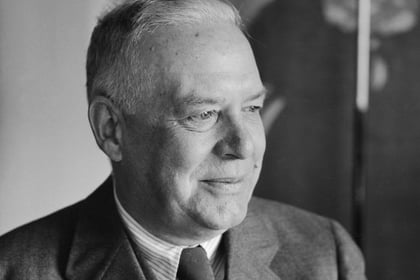Sunday Morning - #353

The rhythm of the week requires one day to be different. For the religious among us, that day is either Saturday or Sunday. It's marked by liturgical observance, for a few hours, but more so by a difference in the rest of the day's time. I've previously written about sabbath a few times, once calling it "a mode of leisure where we stand outside of time to put our minds towards what truly matters."
Part of my Sunday morning is the newspaper. I get a giant roll of newsprint from the Wall Street Journal on Saturdays, usually making it through the news, opinion, and business sections—the workaday stuff. Sunday morning is a cup of coffee and the review section: essays, book excerpts, and reviews. One of the recurring pieces I enjoy is a thoughtful review of classic art. A few Sundays ago, Daniel Akst had a delightful consideration of Wallace Stevens's poem "Sunday Morning." The poet tries ponders a Sunday morning absent the liturgy but still with the otherness; he views the divine among us. It's quite the poem and quite the essay.
I'm not so sure Stevens solves it. Without otherness, things seem a bit flatter than his beautiful poem suggests. Really, what happens without the gods? In Self Consciousness, John Updike's memoir, he referenced our need for them in a study on falling asleep:
... religion tries to put us at ease in this world. Being human cannot be borne alone. We need other presences ... We need the little clicks and sighs of a sustaining otherness. We need the gods.
Without a sustaining otherness, we are lost. Later in the WSJ piece, Akst quotes Stevens on the post-religious age:
He [Stevens] later said that the "annihilation" of the gods had "left us feeling dispossessed and alone in a solitude, like children without parents, in a home that seemed deserted."
These thoughts were in my mind when I encountered the WaPo essay about, after leaving the church, and longing for a way to church. Perry Bacon, Jr. thinks there is a need for an atheist liturgy: his vision is for a a Unitarian/Universalism without any emphasis on the unseen otherness. It doesn't seem like it would hang together very well. But you hope he finds something and to feel less lost.
Reading
'Sunday Morning': Wallace Stevens's Divine StanzasPublished a century ago, the poet's secular meditation on the Christian sabbath considers the human longing for 'some imperishable bliss' amid a culture of waning religiosity. |
|
Sunday MorningWallace Stevens's full poem is here, at poetryfoundation.org. |
I left the church — and now long for a 'church for the nones'Theologically, I'm comfortable being a none. But socially, I feel a bit lost. |
|
